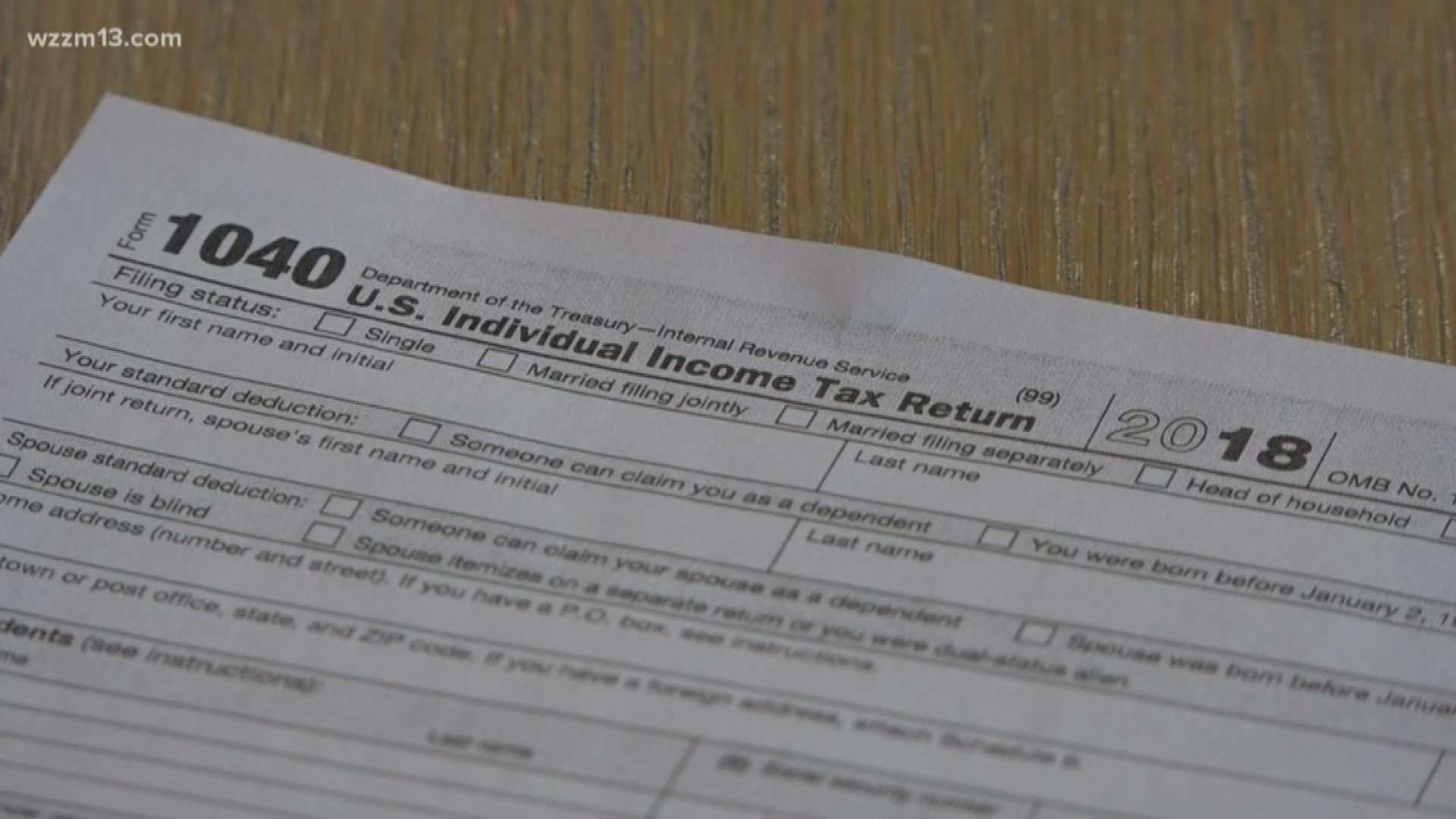GRAND RAPIDS, Mich. —
Despite the government shutdown, the IRS will start processing tax returns on Monday.
With the Tax Cuts and Jobs Act, came changes to the federal income tax form.
There are some major changes under the new tax law, including the physical size of new federal income tax form, which now looks like a double sided postcard.
While it might be simple for some, people with more complex filings will need to pay close attention.
Thankfully, Vanessa Birman, a CPA with Schmidt, Koning, Villarreal & Associates, LLC, walked us through what's new.
Form 1040 is redesigned.
“There are six new Schedules that have been added to support that postcard," Birman said. "For example if you have unemployment compensation, or self-employment tax, or other deductions like student loan interest, those will go on Schedule 1.”
Change in tax rates.
“While the tax rates have been reduced slightly, there's no more personal exemptions for you or your children," Birman said. "They've compensated for that by increasing the standard deduction.”
Standard deduction amount increased.
“Many people that used to itemize or use Schedule A, will now use the standard deduction because it's higher and better for them,” Birman said.
Increased child tax credit and additional child tax credit.
“The child tax credit is now $2,000 per qualifying child, so that's a lot better than in the past," Birman said. "Also the phase out limit is higher, so more people will get that deduction than in the past. There's also a $500 deduction for non-qualifying child dependents.”
Changes to itemized deductions.
“Overall your itemized deductions won't be limited, however, they have limited the tax portion of itemized deductions to $10,000 per year,” Birman said.
Job related expenses and mortgage insurance premiums are no longer deductible.
The tuition and fees deduction is no longer available.
Finally, there is a new qualified business income deduction.
“Which is very complicated, has a lot of nuances," Birman said. "So I recommend if you are in business for yourself or have pass-through income, that you talk to a tax professional.”
Birman said it's also important to note there is still a penalty for not having health insurance.
It’s $695 per adult and $347 per child, or 2.5 percent of household income, up to $2,085.
And remember to file your 1040 by April 15.
For more information, the IRS has instructions for the 1040 tax form on its website.
►Make it easy to keep up to date with more stories like this. Download the 13 ON YOUR SIDE app now.
Have a news tip? Email news@13onyourside.com, visit our Facebook page or Twitter.

